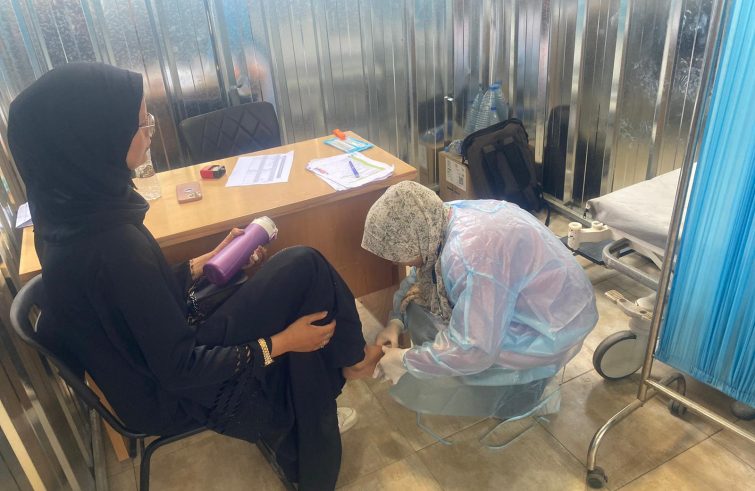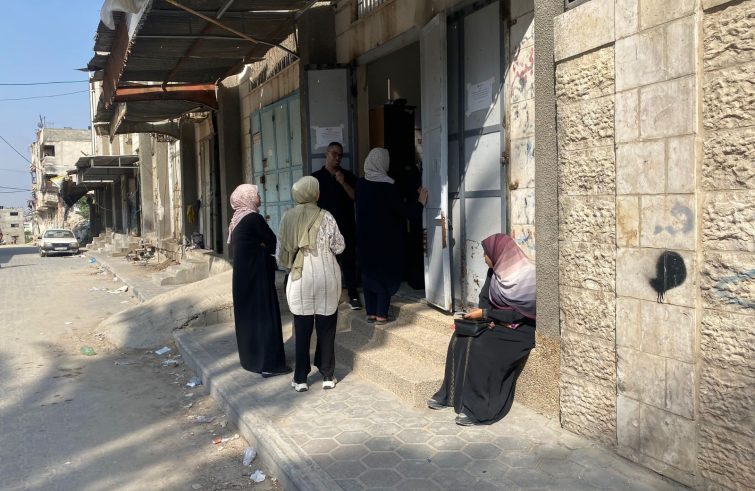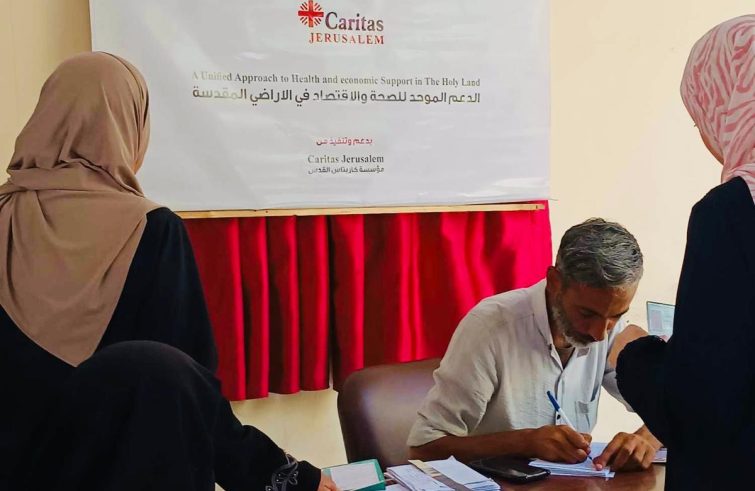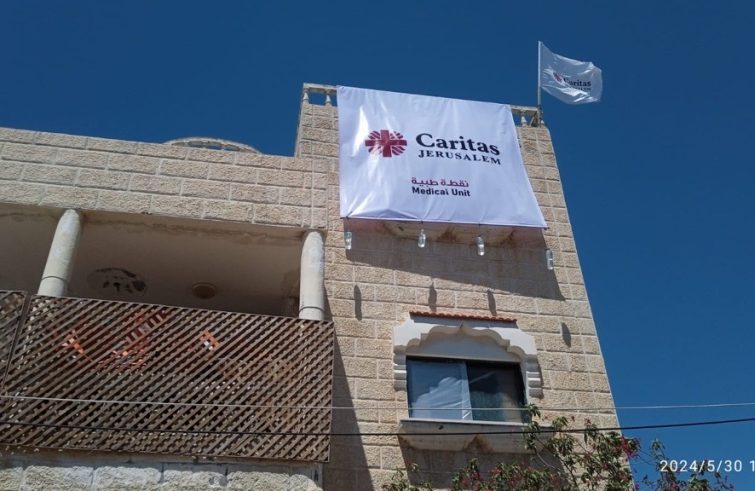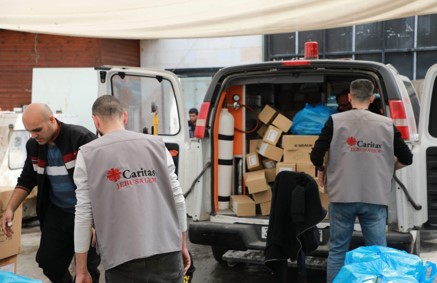
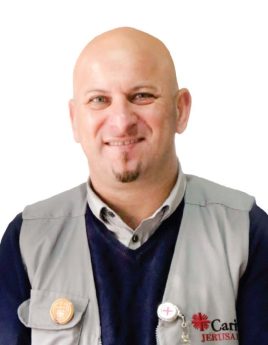 “The situation is deteriorating: Gaza is divided into three parts: the north, the south and the Rafah area, on the border with Egypt. There is a severe shortage of food, particularly in the northern area, where two parishes are situated: the Catholic Church of the Holy Family and the Orthodox Church of St Porphyry. Many women and children are facing food insecurity. Medicine and medical supplies are lacking throughout the Strip. Many inhabitants, including Christians, are considering emigrating abroad.” In a conversation with SIR from Jerusalem, Anton Asfar, Secretary General of the local Caritas, provides an overview of the humanitarian situation in the Strip nine months after the Hamas terrorist attack on Israel (7 October 2023). Caritas Jerusalem, one of the few humanitarian organisations operating in the Palestinian enclave, has been assisting the populations of Gaza City in the north and the southern towns of Rafah and Khan Yunis since the war broke out. It is an arduous task which has cost the lives of two of its staff, Viole and Issam, who were among those killed by bombs in the first months of the conflict.
“The situation is deteriorating: Gaza is divided into three parts: the north, the south and the Rafah area, on the border with Egypt. There is a severe shortage of food, particularly in the northern area, where two parishes are situated: the Catholic Church of the Holy Family and the Orthodox Church of St Porphyry. Many women and children are facing food insecurity. Medicine and medical supplies are lacking throughout the Strip. Many inhabitants, including Christians, are considering emigrating abroad.” In a conversation with SIR from Jerusalem, Anton Asfar, Secretary General of the local Caritas, provides an overview of the humanitarian situation in the Strip nine months after the Hamas terrorist attack on Israel (7 October 2023). Caritas Jerusalem, one of the few humanitarian organisations operating in the Palestinian enclave, has been assisting the populations of Gaza City in the north and the southern towns of Rafah and Khan Yunis since the war broke out. It is an arduous task which has cost the lives of two of its staff, Viole and Issam, who were among those killed by bombs in the first months of the conflict.
Caritas in action. “75 Caritas workers are currently operating in the area,” says Asfar, “almost all of them are in the south, providing medical care and distributing relief and other material goods. There are also 11 medical units present in the same area, where hundreds of thousands of people have been evacuated. We are present in Der El Balah, Khan Yunis and the Al Nuserat camp.
- Gaza, centro cure mediche per donne ferite a Der El Balah (foto Caritas Jerusalem)
- Gaza, il Centro clinico nella parrocchia latina (foto Caritas Jerusalem)
- Gaza, punto medico al campo di Al Nuserat (foto Caritas Jerusalem)
- Gaza, centro medico di Der El Balah (foto Caritas Jerusalem)
We have been providing assistance to the small Christian community displaced in Gaza City. We also run an emergency medical unit for hundreds of people, especially women, children, the elderly and the wounded. The initial contribution of 600,000 Euro from Caritas Italy was crucial to carry out these interventions, not only in Gaza, but also in the Occupied Territories”. Asfar’s concerns extend to the West Bank and East Jerusalem where, he recalls, “the situation is getting worse by the day as a result of the ongoing war in Gaza. Unemployment has risen in these two areas. Tens of thousands of Palestinian workers who used to commute to Israel to work before 7 October have had their work permits revoked and have not received a salary to provide for their families for months. They are also burdened by Israel’s decision to stop the transfer of tax revenues it collects for the PNA (Palestinian National Authority), which prevents the latter from paying salaries to civil servants, in addition to pensions, social benefits and medical care. It is almost impossible for Palestinians to travel between towns in the West Bank because of Israeli military checkpoints. Asfar denounced “the escalating attacks by Israeli settlers on Palestinian property. Palestinians are no longer able to cultivate their land and tend their livestock, losing crops and jobs. The Palestinian economy has stagnated. The PNA’s public school system has also collapsed. Families with children in public schools cannot afford to pay the fees.”
 The support of Caritas Italy. In order to respond to these urgent needs, Caritas Jerusalem and Caritas Italy are working on an intervention plan that will not only provide humanitarian assistance, but also guarantee opportunities for economic and social recovery, both in Gaza and in the West Bank, without forgetting the situations of marginalisation in Israel. “We discussed the implementation of a range of solidarity projects and initiatives with a delegation from Caritas Italy, our traditional partner, during their recent visit (24-27 June, Ed.’s note), including twinning projects between Palestinian parishes and Italian dioceses,” said Asfar. “At the end of July – he announced – some of our young people will travel to Cagliari to take part in a summer vocational training camp organised by the local Caritas, with which we have been working in partnership since 2022. These young people, and all those who will follow them, will carry out these projects in the Holy Land. Young people can be our future if we succeed in keeping them from leaving with serious and sustainable projects.”
The support of Caritas Italy. In order to respond to these urgent needs, Caritas Jerusalem and Caritas Italy are working on an intervention plan that will not only provide humanitarian assistance, but also guarantee opportunities for economic and social recovery, both in Gaza and in the West Bank, without forgetting the situations of marginalisation in Israel. “We discussed the implementation of a range of solidarity projects and initiatives with a delegation from Caritas Italy, our traditional partner, during their recent visit (24-27 June, Ed.’s note), including twinning projects between Palestinian parishes and Italian dioceses,” said Asfar. “At the end of July – he announced – some of our young people will travel to Cagliari to take part in a summer vocational training camp organised by the local Caritas, with which we have been working in partnership since 2022. These young people, and all those who will follow them, will carry out these projects in the Holy Land. Young people can be our future if we succeed in keeping them from leaving with serious and sustainable projects.”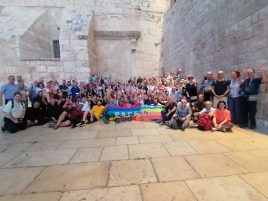
Pilgrimages. Some help could also come from the pilgrims.
“Pilgrimages help to ease the tensions,” Asfar points out. “They provide economic support for many Christian households working in the area of religious tourism and handicrafts, and they create an environment of peace and prayer. We call on the dioceses, the parishes, to return to the Holy Land, to stay in Bethlehem, in Jerusalem. Come to pray for peace. This is what we need”.
What kind of future? “But for the time being,” notes the director of Caritas Jerusalem, “the future has the marks of the rubble of Gaza, of the victims of war, of the terrified eyes of those who survived the bombs. We work to bring hope to people who have lost everything, to those who see no way out, no future in this life, in Gaza, in East Jerusalem, in Bethlehem and throughout the West Bank. As Christians, we are called to bring light and hope where there is darkness.”
No fewer than 20 Christian families in Jerusalem have decided to emigrate in recent months.
They have lost all faith in the future and they fear for their children. For our part, we continue to call for the release of Israeli hostages and Palestinian prisoners. These are necessary steps to create common ground for a first ceasefire agreement, a truce from which to restart.”

